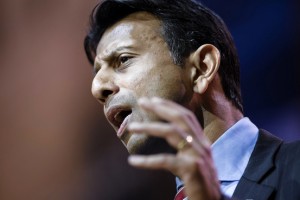Tell Us Your Health-Care Plans, GOP Hopefuls
< < Go Back
by Karl Rove,
ObamaCare will irritate millions of Americans between now and 2016.
Now more than ever, it is imperative for every Republican presidential candidate to present a concrete plan to replace ObamaCare. The Affordable Care Act remains unpopular: Wednesday’s RealClearPolitics average of polls showed 51.4% disapprove while only 43.6% approve. Voters are more likely to be opposed than are adults overall, and opponents are more fervent than supporters.
For example, a June 14 CBS/New York Times poll found that 30% strongly opposed “the health care law that was passed in 2010,” while 24% strongly approved. The opposition would likely have been higher had pollsters labeled the law “ObamaCare.”
ObamaCare participants are older and sicker than expected, so insurers are asking for big premium increases. The average requested premium hike, across 45 states and the District of Columbia, is nearly 24%, according to data from healthcare.gov.
The maximum deductible allowed by law will rise 3.8% to $6,850 next year, faster than growth in the average family’s income. The penalty on companies that don’t provide insurance to full-time employees will also rise 3.8%, to $2,160 a worker. Many employers may choose to pay the fine, dump their existing insurance, and put their workers into ObamaCare instead.
The penalty—or rather the tax, as the Supreme Court would have it—on individuals for not having insurance will rise next year to $325 a person, or 2% of income above $10,150, whichever is larger, from $95 a person or 1% of household income above $10,150.
These are a few of the ways that ObamaCare will further irritate millions of Americans—which is why Republican hopefuls must make replacing the law a significant campaign issue.
There are encouraging signs. Former Hewlett-Packard CEO Carly Fiorina highlights how technology can improve health care. Ben Carson, a neurosurgeon, stresses health-savings accounts. But this level of detail will soon be insufficient.
Louisiana Gov. Bobby Jindal’s plan to replace ObamaCare is the most comprehensive so far. It would fund programs managed and designed by the states to help low-income workers and people with existing conditions purchase insurance. It also emphasizes competition and consumer choice, increases transparency in pricing, expands health-savings accounts, and encourages greater personal ownership of insurance through a tax deduction. Gov. Jindal also supports allowing insurers to sell policies across state lines, providing flexibility for small businesses to pool risk, and reforming medical liability laws.
Florida Sen. Marco Rubio would make it possible for workers to take their insurance from job to job by giving them an advanceable, refundable tax credit. He would pair this with expanded health-savings accounts and rules to allow purchasing insurance across state lines. Like Gov. Jindal, he would use state-run, federally funded high-risk pools to help people with existing conditions. Sen. Rubio would also improve Medicaid by giving states wide flexibility, and reform Medicare by using the premium-support model championed by Rep. Paul Ryan.
Former Florida Gov. Jeb Bush hasn’t offered a detailed plan.
These are good starts, but each Republican candidate will need a broad framework and an action agenda that make sense to voters, one that the candidate is comfortable defending.
More From Rove.com:




